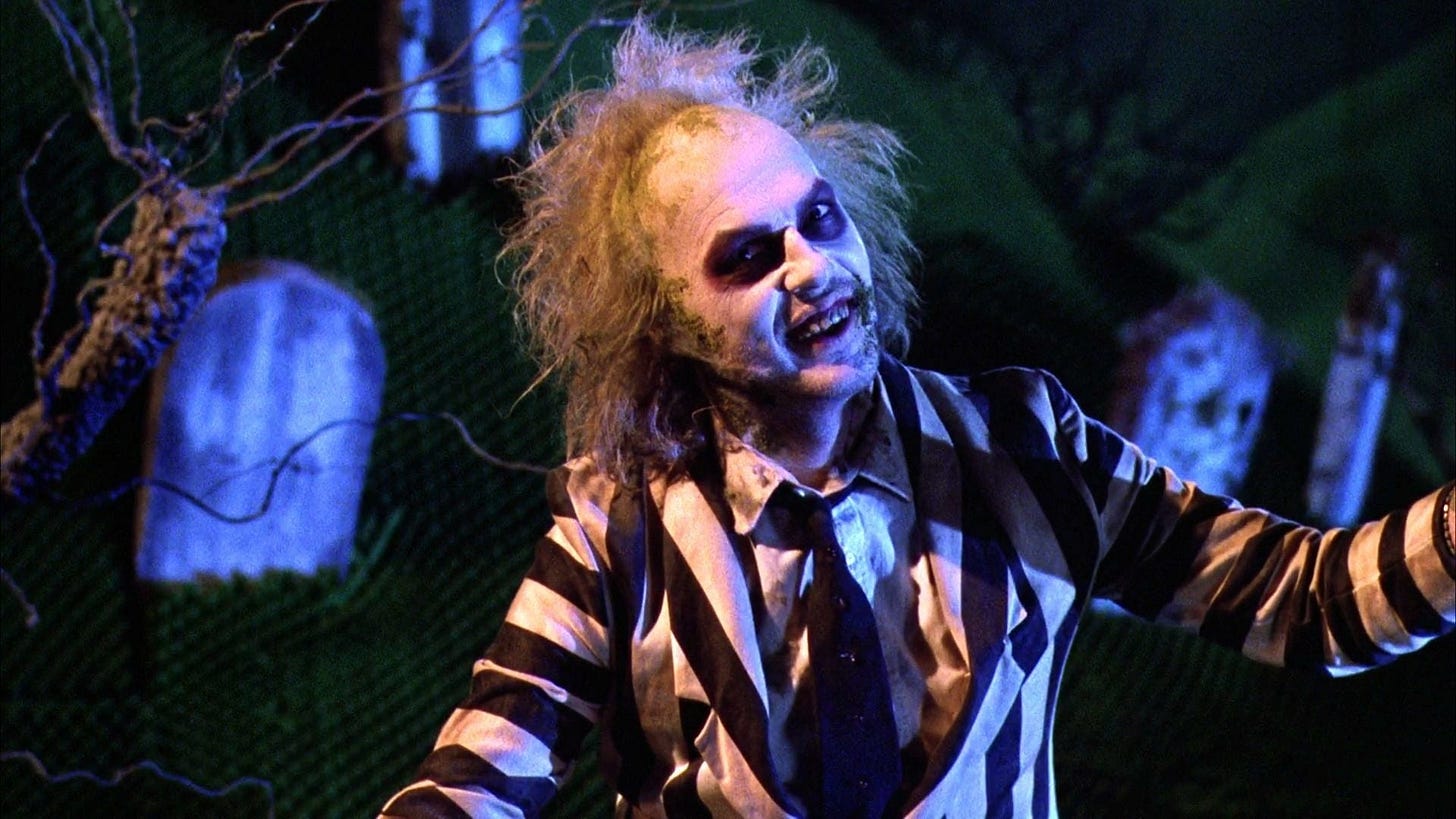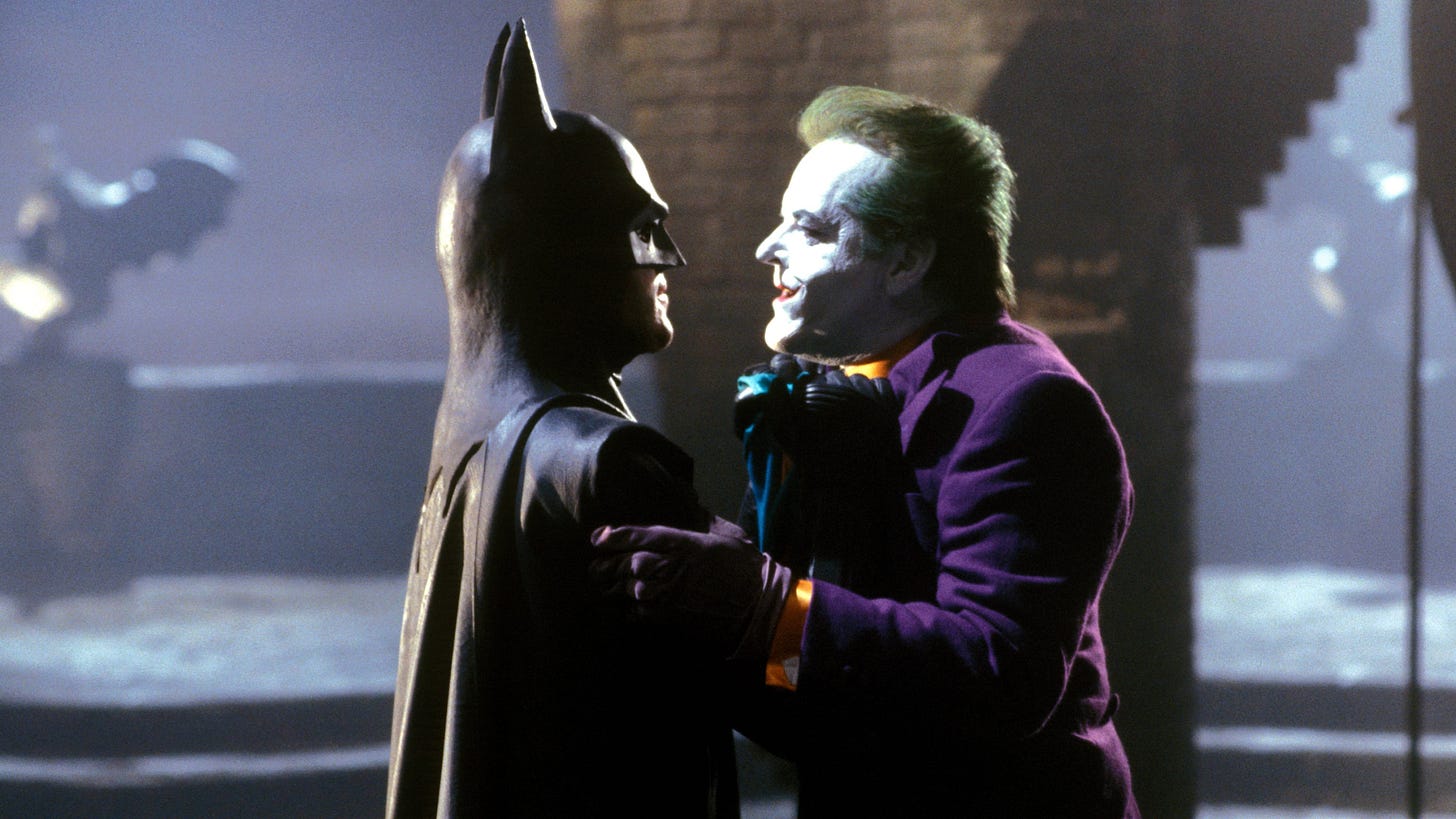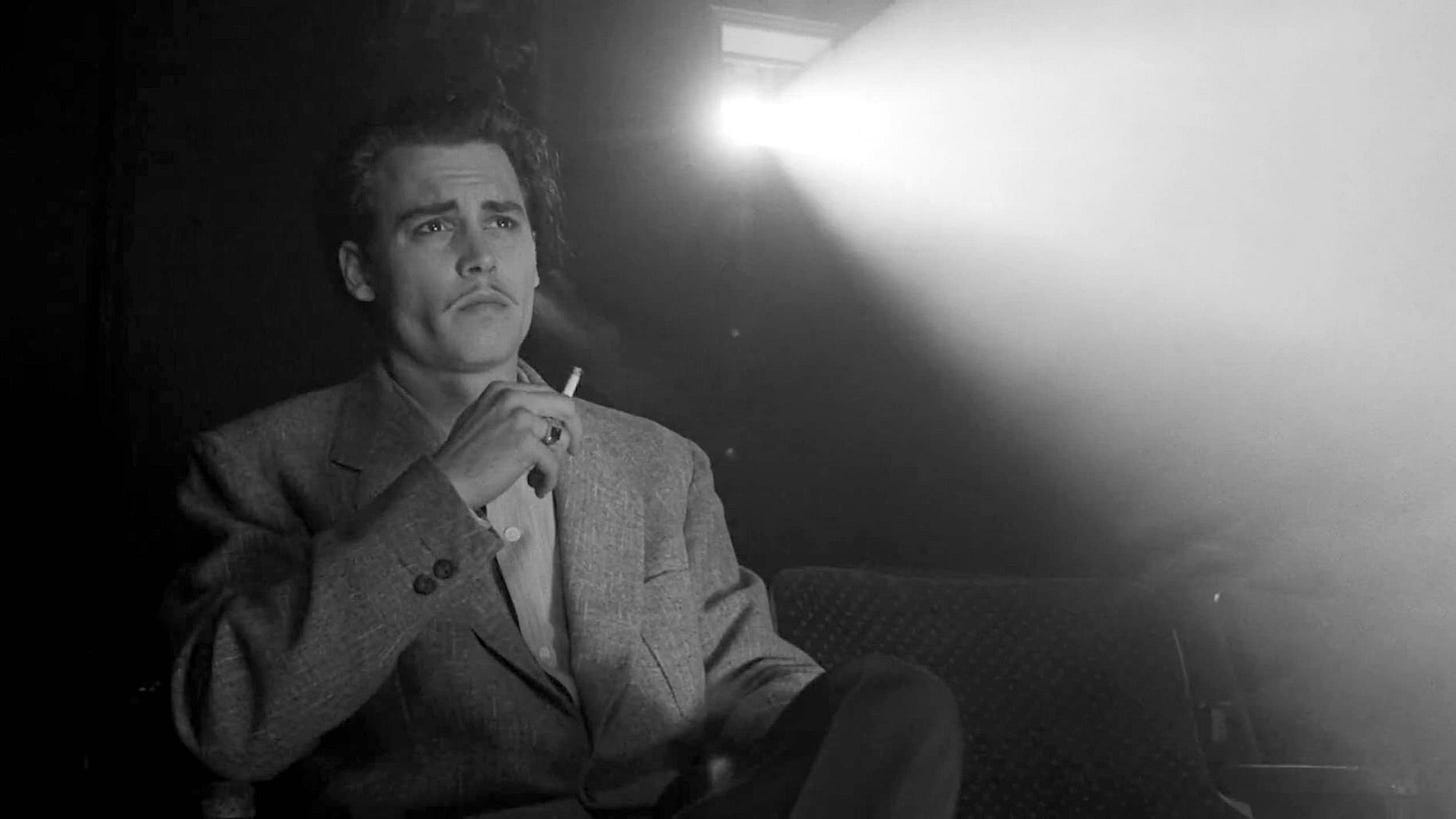Tim Burton is one of our most interesting filmmakers. Not only is his work unique, his filmography is basically split down the middle between winners and duds. The first half of his career was both critically and commercially successful, but around the turn of the century, his work (and the public perception of it) seems to have fallen off completely. Yet his work is so singular and distinct, it's still all over hoodies and Funko Pops and Fanta flavors.
Let's take a look at the five movies, the unmistakable successes, that have defined his career:
Beetlejuice (1988)
A newly dead New England couple seek help from a deranged demon exorcist to scare an affluent New York family out of their home.
Burton made his feature-film directing debut with Pee-wee's Big Adventure in 1985, but the Pee-wee brand and Paul Reubens' performance were so well-defined by that point that it was Burton's job to fill in the gaps. Beetlejuice, a script about the best and worst parts of dying, was his first chance to bring his imaginative doodles to the big screen. It's a Tim Burton movie through and through.
And that's what makes it his first magic trick. On paper, this is a movie about the complex DMV-like bureaucracy of the afterlife, where the title character is a demon who resembles a late-night host and is barely in the movie (and whose name is spelled differently than the title for who knows what reason), filled with calypso music and Caligari-inspired art design. How then did he turn this into a franchise complete with an animated series, Broadway musical, and brand-new sequel?
The most important element is his collaboration with Michael Keaton, which makes the movie. (It's crazy to think he originally wanted Sammy Davis Jr.!) His all-star cast (Keaton supports Alec Baldwin, Geena Davis, Catherine O'Hara, and Winona Ryder) is totally prepared to make this nonsense make sense, while Burton can play around with all of the design and production elements now synonymous with his output. The uninspired parts of the sequel just showed how clever and creative it was the first time around. It's a relentlessly fun madhouse circus that keeps you revved up for every minute of its runtime.
Batman (1989)
Batman must face his most ruthless nemesis when a deformed madman calling himself "The Joker" seizes control of Gotham's criminal underworld.
After those two box-office blowups, Burton graduated to the primetime with the first serious Batman film on the big screen. Continuing what has become an ongoing collaboration with Keaton, Burton brings his dark and creative design sensibilities to a genre, superhero movies, that needed a tonal reset after movies like Superman IV: The Quest for Peace had been laughed off. For pulling off such a feat, we should thank him for making supers cool again, while also cursing his name at the sky for teaching an entire generation of filmmakers, the ones making comic book movies now, all of the wrong lessons.
Regardless, Batman is a fantastic movie and despite what the sequel-supporters may say, is the second-best live-action Batman film, only behind The Dark Knight. In fact, I wrote the following in my Batman rankings:
This is so close to being my number one.
My favorite interpretation of my favorite superhero is Batman: The Animated Series. I find it to be basically definitive. Look, style, characterization, interpretation — it wins in just about every category.
And that show would not exist without Tim Burton’s version of this universe.
This may sound hypocritical from the guy who wasn’t amazed by The Batman, but I think the World’s Greatest Detective is at his best when he lives in a world that is a solid mixture of film noir and classic cartoon - there is zero cartoon in Matt Reeves’ rendition.
I think that Burton achieves that balance perfectly in his first film. His film is all about dichotomy. Dark and light, good and evil, Batman (an excellent Michael Keaton) vs. Joker (a visionary Jack Nicholson), and of course, noir and camp. It may be the best film representation of the world I love so much.
Ed Wood (1994)
The mostly true story of the legendary "worst director of all time", who, with the help of his strange friends, filmed countless B-movies without ever becoming famous or successful.
While Batman is probably the best movie Tim Burton ever made, Ed Wood is the best Tim Burton movie.
Ed Wood tells the story of Edward D. Wood Jr., the low-budget filmmaker credited with making some of the "worst movies ever made," like Glen or Glenda and Plan 9 from Outer Space. Anyone who has seen these movies knows that they aren't the worst movies ever, but Wood's cinematic cultability levels are definitely through the roof. These are movies where actors flub lines or knock over set pieces and the camera just keeps rolling. "We are going to finish this picture just the way I want it because you cannot compromise an artist's vision," says Johnny Depp, in probably his best role, as Wood.
Burton is no doubt inspired by Wood, not just in the eerie settings or kooky characters, but in that low-budget filmmaking mentality that made Wood so ubiquitous in cinema circles. At this point, Burton is two Batman films in, so busy he's unable to direct and only able to produce A Nightmare Before Christmas and Cabin Boy, and about to see his Superman movie fall apart. A man with this much creativity bouncing around in his brain is bound to be frustrated by the studio system. He speaks through the character of Ed in the movie, crafting a story about artistic vision and the joys of doing what you want to do.
A never-ending all-star cast (most notably Martin Landau, who won an Oscar for his portrayal of Bela Lugosi, and Sarah Jessica Parker as Ed's first girlfriend), brings this island of misfit toys to life with heart and passion, Burton's most surprising quality in his wildest worlds.
Big Fish (2003)
Throughout his life Edward Bloom has always been a man of big appetites, enormous passions and tall tales. In his later years, he remains a huge mystery to his son, William. Now, to get to know the real man, Will begins piecing together a true picture of his father from flashbacks of his amazing adventures.
From Edward Wood to Edward Bloom (sorry, Edward Scissorhands!), Burton crafted an entire movie (one many consider to be his last great movie) around that sentimentality he only snuck into his weirder worlds.
It's the story of a storyteller, one who has an affinity for tall tales and hyperbolic imaginings. It's a whimsical movie about believing in the forces of your imagination while embracing both the heartwarming and heartbreaking. These are the qualities that have also made a Tim Burton movie a Tim Burton movie, but under his consistently horror-adjacent guise, they've sometimes gotten lost in the macabre of it all.
There's a reason that so many of Burton's films are either musicals (and/or heavily fueled by the scores, most often by longtime collaborator Danny Elfman) or have been turned into musicals (as is the case with Big Fish) because he's working in emotions so heightened and so dramatic that oftentimes only music can speak to the truest feelings.
This film comes at such an interesting place in his career because he's fresh off his Razzie-winner Planet of the Apes remake (the Razzies are dumb, but it's important to note that the last three movies on this list all received some kind of Academy Award - which is also dumb but it at least gives context), and was about to go off the deep end with his Charlie and the Chocolate Factory remake. This may be his final truly uncompromised and well-executed film.
Corpse Bride (2005)
Set in a 19th-century European village, this stop-motion animation feature follows the story of Victor, a young man whisked away to the underworld and wed to a mysterious corpse bride, while his real bride Victoria waits bereft in the land of the living.
Why then does this list end with one more movie? By all accounts, Corpse Bride is not as strong as Big Fish, but it is representative of a few things that have not been represented/have not been represented enough on this list.
For starters, any visual artist working in film and working on this scale can only perfectly carve and craft their vision in an animated world. We talked about this on the Fantastic Mr. Fox episode of The Wes Anderson-a-thon, that these manufactured worlds are the closest they can get to the dreams in their head. Burton only produced The Nightmare Before Christmas and James and the Giant Peach so, believe it or not, this was his first animated feature film. With Frankenweenie as its only competition, that also means it's his best.
And you can't honestly talk about Burton and his work without talking about his motley crew of continuing collaborators. He and Johnny Depp made eight movies together and only one has been represented so far, then-partner Helena Bonham Carter also appeared in eight movies, and he simply wouldn't be who he is as a filmmaker without composer Danny Elfman. This might not be his best movie (it is, however, only 77 minutes!), but it could be argued as the most representative of who he is as an artist.
Credit: Each plot synopsis comes from Letterboxd via TMDb.
Want to commission a review? Order from this list and you’ll get one in 30 days!









